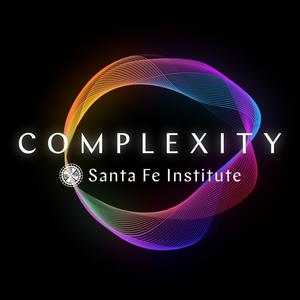Nature of Intelligence, Ep. 2: The relationship between language and thought
Guests: Evelina Fedorenko, Associate Professor, Department of Brain and Cognitive Sciences, and Investigator, McGovern Institute for Brain Research, MITSteve Piantadosi, Professor of Psychology and Neuroscience, and Head of Computation and Language Lab, UC BerkeleyGary Lupyan, Professor of Psychology, University of Wisconsin-MadisonHosts: Abha Eli Phoboo & Melanie MitchellProducer: Katherine MoncurePodcast theme music by: Mitch MignanoFollow us on:Twitter • YouTube • Facebook • Instagram • LinkedIn • BlueskyMore info:Tutorial: Fundamentals of Machine LearningLecture: Artificial IntelligenceSFI programs: EducationBooks: Artificial Intelligence: A Guide for Thinking Humans by Melanie MitchellDeveloping Object Concepts in Infancy: An Associative Learning Perspective by Rakison, D.H., and G. LupyanLanguage and Mind by Noam ChomskyOn Language by Noam ChomskyTalks: The Future of Artificial Intelligence by Melanie MitchellThe language system in the human brain: Parallels & Differences with LLMs by Evelina Federenko Papers & Articles:“Dissociating language and thought in large language models,” in Trends in Cognitive Science (March 19, 2024), doi: 10.1016/j.tics.2024.01.011“The language network as a natural kind within the broader landscape of the human brain,” in Nature Reviews Neuroscience (April 12, 2024), doi.org/10.1038/s41583-024-00802-4“Visual grounding helps learn word meanings in low-data regimes,” in arXiv (v2 revised on 25 March 2024), doi.org/10.48550/arXiv.2310.13257“No evidence of theory of mind reasoning in the human language network,” in Cerebral Cortex (December 28, 2022), doi.org/10.1093/cercor/bhac505“Chapter 1: Modern language models refute Chomsky’s approach to language,” by Steve T. Piantadosi (v7, November 2023), lingbuzz/007180“Uniquely human intelligence arose from expanded information capacity,” in Nature Reviews Psychology (April 2, 2024), doi.org/10.1038/s44159-024-00283-3“Understanding the allure and pitfalls of Chomsky's acience,” Review by Gary Lupyan, in The American Journal of Psychology (Spring 2018), doi.org/10.5406/amerjpsyc.131.1.0112“Language is more abstract than you think, or, why aren’t languages more iconic?” in Philosophical Transactions of the Royal Society B (June 18, 2018), Published:18 June 2018, doi.org/10.1098/rstb.2017.0137“Does vocabulary help structure the mind?” in Minnesota Symposia on Child Psychology: Human Communication: Origins, Mechanisms, and Functions (February 27, 2021), doi.org/10.1002/9781119684527.ch6“Use of superordinate labels yields more robust and human-like visual representations in convolutional neural networks,” in Journal of Vision (December 2021), doi.org/10.1167/jov.21.13.13“Appeals to ‘Theory of Mind’ no longer explain much in language evolution,” by Justin Sulik and Gary Lupyan“Effects of language on visual perception,” in Trends in Cognitive Sciences (October 1, 2020), doi.org/10.1016/j.tics.2020.08.005“Is language-of-thought the best game in the town we live?” in Behavioral and Brain Sciences (September 28, 2023), doi:10.1017/S0140525X23001814“Can we distinguish machine learning from human learning?” in arXiv (October 8, 2019), doi.org/10.48550/arXiv.1910.03466
